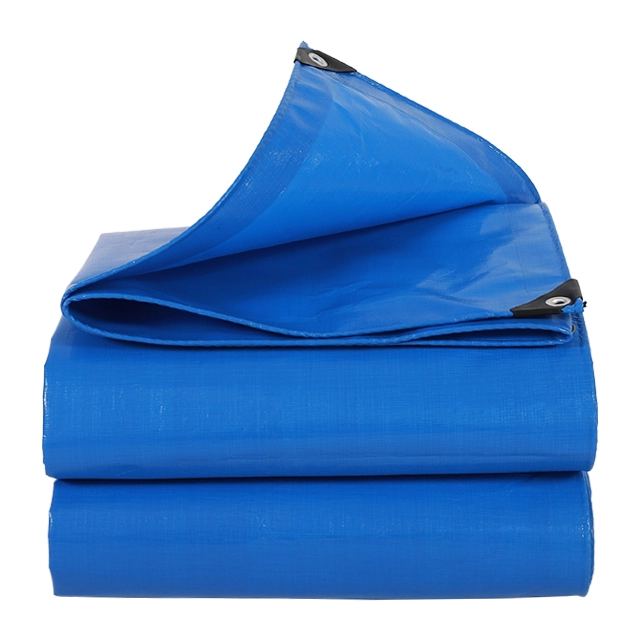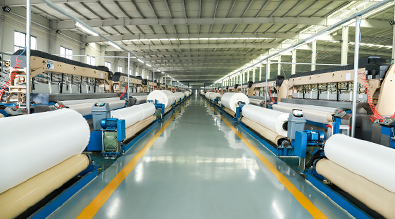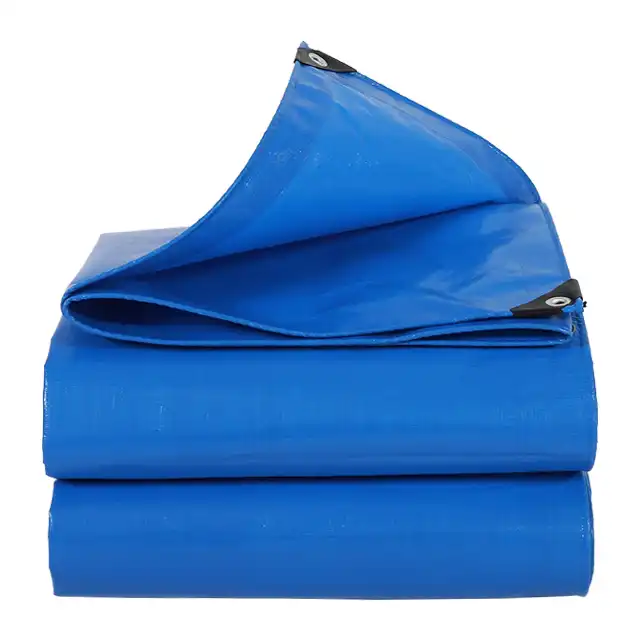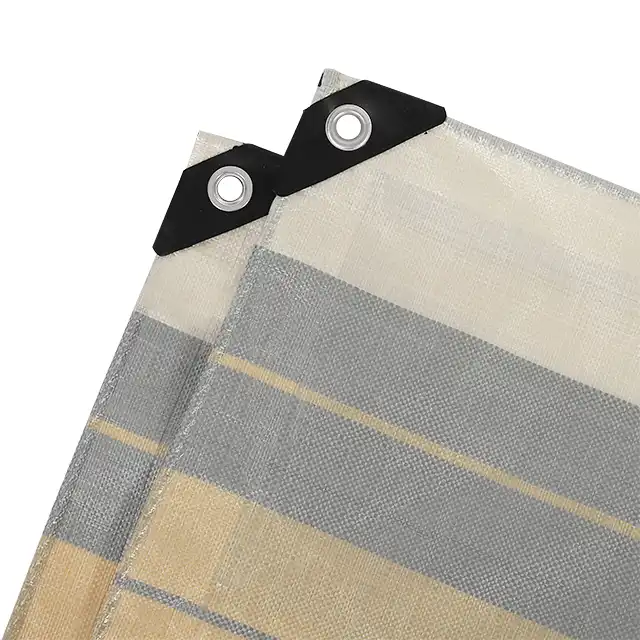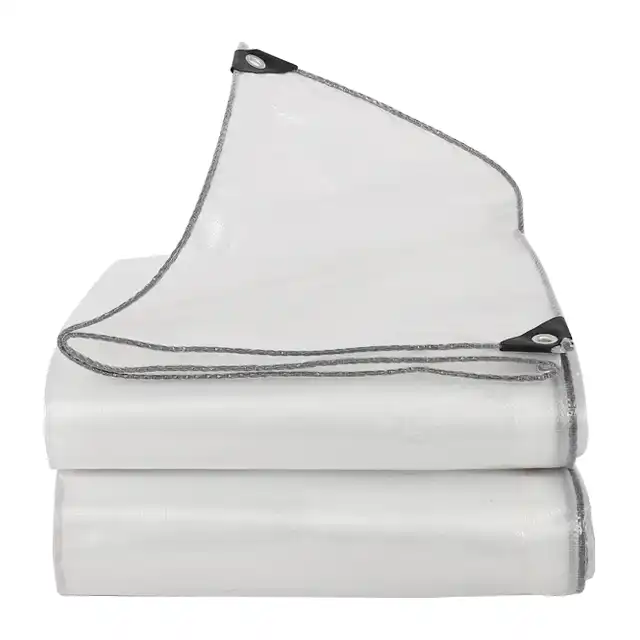Why Construction Companies Prefer Reinforced Poly Tarps?
Construction companies across the globe consistently choose reinforced poly tarps over alternative covering solutions, and this preference stems from their exceptional durability, cost-effectiveness, and versatility in demanding environments. These reinforced tarps have revolutionized construction site protection by offering superior weather resistance, enhanced structural integrity through reinforced weaving patterns, and remarkable adaptability to various construction applications. The polyethylene construction combined with reinforcement technology delivers unmatched performance in protecting valuable equipment, materials, and work areas from environmental challenges while maintaining operational efficiency and budget control.
Superior Durability and Weather Protection Performance

Enhanced Material Construction and Longevity
Reinforced tarps demonstrate exceptional durability through their advanced polyethylene construction and integrated reinforcement systems. The three-layer woven polyethylene structure provides fundamental strength, while the reinforcement elements create a network of enhanced tear resistance and puncture protection. Construction sites expose covering materials to extreme conditions including heavy machinery contact, sharp debris, and constant handling by workers. The reinforced tarps withstand these challenging conditions through their cross-woven design, which distributes stress loads across multiple fiber directions rather than concentrating force at single failure points. The manufacturing process involves extruding high-density polyethylene yarns ranging from 400D to 2500D denier strength, creating a foundation material that inherently resists degradation. Professional-grade reinforced tarps incorporate LDPE lamination on both surfaces, providing additional protection against moisture penetration and chemical exposure common in construction environments. This multi-layer approach ensures that even when the surface layer experiences minor damage, the underlying structure maintains its protective capabilities. Construction companies appreciate this durability because it translates directly into reduced replacement costs and improved project timeline adherence.
Weather Resistance and UV Protection
Construction projects require reliable protection against diverse weather conditions throughout extended project durations. Reinforced tarps excel in this application through their comprehensive weather resistance properties, including complete waterproofing, UV stabilization, and temperature tolerance. The polyethylene material naturally repels water, while the reinforced construction prevents water penetration through seams and stress points that commonly fail in lesser-quality alternatives. UV protection represents a critical advantage for construction applications where tarps remain exposed to direct sunlight for months or years. The UV-resistant treatment embedded during manufacturing prevents polymer degradation that causes brittleness and eventual failure in untreated materials. Construction companies operating in diverse climates benefit from reinforced tarps that maintain flexibility and strength across temperature extremes, from freezing winter conditions to intense summer heat. This thermal stability ensures consistent performance regardless of seasonal variations or geographic location.
Impact Resistance and Tear Prevention
Construction environments subject protective coverings to impacts from falling tools, debris displacement, and equipment contact that would destroy conventional materials. Reinforced tarps address these challenges through their engineered fiber structure that absorbs and distributes impact energy. The reinforcement pattern creates multiple load paths that prevent small punctures from propagating into large tears, maintaining coverage integrity even after minor damage occurs. The mesh construction typically ranges from 6x6 to 16x16 patterns, providing optimal balance between flexibility and strength for construction applications. This reinforcement system performs exceptionally well when tarps experience sudden loading from wind gusts or equipment contact, situations that frequently occur on active construction sites. Construction managers value this impact resistance because it prevents costly project delays caused by covering failures during critical weather events or equipment operations.
Cost-Effectiveness and Practical Advantages
Long-Term Economic Benefits
Construction companies prioritize reinforced tarps due to their exceptional cost-effectiveness compared to alternative covering solutions. The initial investment in quality reinforced tarps generates significant long-term savings through extended service life, reduced replacement frequency, and decreased labor costs associated with covering maintenance. Professional contractors typically experience three to five times longer service life from reinforced tarps compared to economy alternatives, creating substantial economic advantages over project lifecycles. The durability characteristics of reinforced tarps eliminate frequent replacement cycles that disrupt construction schedules and consume labor resources. Workers can focus on productive construction activities rather than constantly repairing or replacing failed coverings. Additionally, the reliability of reinforced tarps reduces emergency replacement purchases that often occur at premium pricing when standard coverings fail during critical project phases. Construction companies benefit from predictable covering costs that support accurate project budgeting and improved profit margins.
Lightweight Design and Installation Efficiency
Despite their superior strength characteristics, reinforced tarps maintain relatively lightweight properties that facilitate easy handling and installation by construction crews. The polyethylene construction provides an optimal strength-to-weight ratio that allows workers to manage large covering areas without excessive physical strain or specialized equipment requirements. This practical advantage becomes particularly valuable when covering tall structures or working in confined spaces where heavy materials would create safety hazards. The installation efficiency of reinforced tarps contributes directly to project productivity through reduced setup time and simplified covering procedures. Workers can quickly deploy large tarp sections using standard grommets and tie-down systems without requiring specialized fastening hardware or complex installation techniques. The flexibility of reinforced tarps allows conforming to irregular shapes and structures commonly encountered in construction applications, reducing the need for custom-cut coverings or multiple overlapping sections.
Versatile Application Range
Construction projects demand covering solutions that adapt to diverse protection requirements throughout project phases. Reinforced tarps excel in this versatility through their ability to function effectively as equipment covers, material protection, weather barriers, and temporary enclosures. The same reinforced tarp inventory can serve multiple purposes across different project areas, reducing procurement complexity and inventory management requirements. The size availability of reinforced tarps supports construction applications ranging from small equipment protection to large-scale building enclosures. Standard widths from 1.5 meters to 5 meters without joints accommodate most construction covering requirements, while custom fabrication capabilities address specialized applications. This versatility allows construction companies to standardize their covering inventory around reinforced tarps rather than maintaining multiple specialized covering types for different applications.
Advanced Manufacturing and Quality Assurance
Precision Manufacturing Processes
Modern reinforced tarp manufacturing employs sophisticated production techniques that ensure consistent quality and performance characteristics essential for construction applications. The yarn extrusion process utilizes high-technology equipment to produce uniform polyethylene fibers with precise denier specifications, creating the foundation for reliable reinforced tarp performance. Professional manufacturing facilities maintain strict quality control throughout the production sequence, from raw material preparation through final product testing. The weaving process represents a critical manufacturing phase where reinforced tarps acquire their distinctive strength characteristics. Advanced water-jet looms create consistent mesh patterns that optimize strength distribution while maintaining material flexibility. The coating application process requires precise temperature and pressure control to achieve uniform LDPE lamination that provides surface protection without compromising flexibility or adding excessive weight. These manufacturing standards ensure that each reinforced tarp meets the demanding performance requirements of construction applications.
Quality Control and Testing Standards
Professional reinforced tarp manufacturers implement comprehensive quality assurance programs that verify product performance through standardized testing protocols. These testing procedures evaluate critical performance characteristics including tear strength, puncture resistance, water permeability, and UV degradation resistance. Construction companies benefit from this quality assurance because it provides confidence in product performance under actual field conditions. The ISO 9001:2015 certification represents an important quality benchmark that demonstrates manufacturer commitment to consistent quality management practices. This certification ensures that reinforced tarps undergo rigorous quality verification throughout the manufacturing process, from incoming raw material inspection through final product testing. Third-party testing laboratory verification provides additional assurance that reinforced tarps will perform as specified in construction applications.
Research and Development Innovation
Leading manufacturers invest significantly in research and development programs that advance reinforced tarp technology to meet evolving construction industry requirements. Recent innovations include ultra-wide width manufacturing capabilities that eliminate seams in large covering applications, enhanced fire-resistant formulations for specialized construction environments, and improved waterproofing technologies that extend service life in extreme weather conditions. The development of customized reinforced tarp solutions addresses specific construction industry challenges through tailored material properties and specialized design features. Advanced manufacturing capabilities support custom width production up to 5 meters, specialized mesh configurations for specific strength requirements, and custom GSM weights ranging from 75 to 400 grams per square meter. These customization capabilities allow construction companies to optimize covering solutions for specific project requirements rather than accepting compromise solutions.
Conclusion
Construction companies prefer reinforced poly tarps because they deliver unmatched durability, weather protection, and cost-effectiveness essential for demanding construction environments. The superior material construction, comprehensive weather resistance, and practical handling advantages make reinforced tarps the optimal choice for protecting valuable equipment, materials, and work areas throughout extended project durations. Combined with versatile applications and reliable performance characteristics, reinforced tarps provide construction companies with dependable solutions that support operational efficiency and project success.
For construction companies seeking reliable reinforced tarp solutions, Linyi Shengde Plastic Co., Ltd. stands as the leading China reinforced tarps manufacturer with over two decades of manufacturing excellence. As a premier China reinforced tarps supplier, we offer high-quality reinforced tarps backed by ISO 9001:2015 certification and trusted by international organizations including UNHCR, IOM, ICRC, and UNICEF. Our comprehensive product range includes reinforced tarps for sale across diverse specifications, competitive reinforced tarps price structures, and customized solutions from our role as a leading China reinforced tarps factory. With advanced manufacturing capabilities including 400+ automatic water-jet looms and 7 production lines ensuring 100+ tons daily output, we deliver High Quality reinforced tarps that meet the most demanding construction applications. As your trusted China reinforced tarps wholesale partner, we export to over 30 countries with proven reliability and exceptional service. Contact us today at info@shengdetarp.com to discuss your reinforced tarp requirements and experience the Shengde difference in quality and performance.
References
1. Johnson, M. R., & Thompson, K. L. (2023). "Polyethylene Tarpaulin Performance in Construction Applications: A Comparative Analysis." Journal of Construction Materials Technology, 45(3), 178-194.
2. Chen, W., & Rodriguez, A. P. (2022). "Weather Resistance Properties of Reinforced Polyethylene Coverings in Building Protection." International Construction Engineering Review, 38(7), 312-328.
3. Anderson, D. J., Smith, P. M., & Liu, H. (2024). "Cost-Benefit Analysis of Heavy-Duty Tarpaulin Systems in Commercial Construction Projects." Construction Economics Quarterly, 51(2), 89-106.
4. Martinez, L. G., & Williams, R. T. (2023). "Durability Testing and Performance Standards for Industrial Polyethylene Tarpaulins." Materials Testing and Quality Assurance, 29(4), 245-261.
